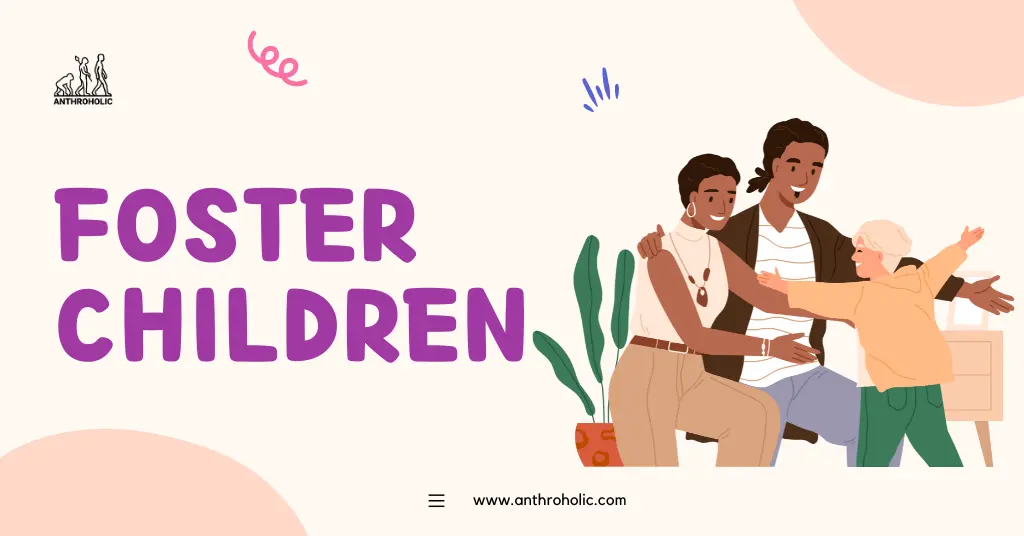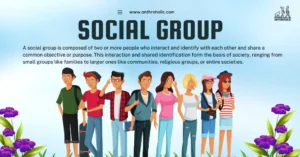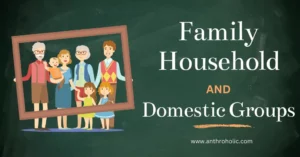AI Answer Evaluation Platform Live Now. Try Free Answer Evaluation Now
Foster Children
Foster children refer to minors who have been placed in the care of a foster family or foster care system due to various reasons, such as neglect, abuse, or the inability of their biological parents to provide adequate care [1]. Foster care entails a temporary living arrangement aimed at ensuring the well-being and safety of these children until they can be reunited with their biological families or find permanent homes through adoption or guardianship.

Evolution of Foster Care Systems
Over time, foster care systems have undergone significant changes, shaped by social and cultural transformations. The rise of the modern foster care model can be traced back to the late 19th century, when orphanages started shifting towards placing children in family-like environments. This shift was driven by growing awareness of the importance of individualized care and the belief that children thrive best within a family setting. Furthermore, societal changes, such as increased urbanization and industrialization, also influenced the development of foster care systems.
Cultural Variations in Foster Care
Foster care practices vary across cultures, reflecting different social norms, values, and beliefs. For instance, in some Indigenous communities, extended kinship networks play a significant role in providing foster care, with children often placed with relatives or community members. In contrast, Western societies tend to rely more on formal foster care agencies and non-relative foster families. Understanding these cultural variations is crucial for implementing culturally sensitive and effective foster care policies and practices [2].
Challenges Faced by Foster Children
Foster children encounter various challenges throughout their foster care experience, which can significantly impact their well-being and development.
- Instability and Placement Disruptions: Foster children often face instability due to frequent placement changes. The instability experienced by foster children can lead to feelings of insecurity, attachment difficulties, and a lack of stability in their daily lives.
- Loss and Separation: Foster children may have experienced significant loss and separation from their biological families, which can contribute to feelings of grief, confusion, and identity-related challenges. The process of adjusting to new caregivers and adapting to different familial and cultural contexts can be emotionally demanding for foster children.
Psychological and Emotional Impact on Foster Children
The foster care experience can have profound psychological and emotional effects on children, shaped by their previous experiences and the quality of care they receive.
- Emotional Well-being and Mental Health: Foster children may exhibit higher rates of depression, anxiety, post-traumatic stress disorder (PTSD), and other behavioral and emotional disorders. The disruptions in their lives, exposure to trauma, and attachment disruptions can contribute to these difficulties.
- Attachment and Trust: Foster children may struggle with loss of trust and inconsistent caregiving experiences can make it difficult for foster children to develop healthy attachment patterns and trust in their relationships. These challenges can impact their ability to form close relationships and regulate their emotions effectively.
Identity Formation and Self-Concept
Identity formation and the development of a positive self-concept can be complex for foster children, as they navigate between their biological heritage and their experiences in the foster care system.
- Cultural and Ethnic Identity: Placement changes, cultural differences between foster families and their biological families, and limited exposure to their cultural communities can influence their sense of belonging and identity development. It is important to support foster children in exploring and embracing their cultural identity.
- Self-esteem and Identity Development: Foster children may struggle with feelings of rejection, low self-worth, and a sense of not belonging. Supportive environments, positive role models, and opportunities for self-expression and exploration can contribute to healthier self-esteem and identity development outcomes for foster children.
Issues and Criticisms within the Foster Care System
- Overburdened and Underfunded System: The foster care system often struggles with limited resources and inadequate funding, leading to caseworker overload, high caseloads, and insufficient support for foster families.
- Placement Instability and Lack of Continuity: Frequent moves can lead to educational disruptions, limited access to healthcare, and difficulties in forming trusting relationships.
- Limited Support for Aging-Out Youth: Aging-out refers to the transition of foster youth to adulthood when they reach the age of majority without finding a permanent family or support system. The lack of resources and guidance during this critical transition phase can contribute to negative outcomes for these individuals.
Innovations and Initiatives for Improvement
Efforts to improve the foster care system have led to innovative approaches and initiatives aimed at addressing its shortcomings and providing better outcomes for foster children.
- Family Preservation Programs: Services such as parenting classes, substance abuse treatment, and mental health support aim to strengthen families and reduce the need for foster care placements.
- Trauma-Informed Care: Recognizing the prevalence of trauma among foster children, trauma-informed care approaches prioritize understanding and responding to the unique needs and experiences of traumatized individuals. This approach emphasizes safety, trust, collaboration, and empowerment in caregiving.
- Therapeutic Foster Care: Therapeutic foster care programs provide specialized training to foster parents to support the needs of children with significant emotional or behavioral challenges.
Advocacy and Policy Recommendations
Advocacy plays a crucial role in shaping policy and driving positive change within the foster care system. Based on research and experiences, the following recommendations have been made to improve the system:
- Increased Funding and Resources
- Enhanced Support for Youth Aging Out
- Collaboration and Information Sharing
Importance of Studying Foster Care
Studying foster care is crucial for understanding the complex social dynamics and challenges faced by children within the system. It sheds light on the experiences, well-being, and development of foster children, providing valuable insights for policy-makers, social workers, and researchers. By exploring foster care from an anthropological perspective, we can better comprehend the cultural variations in foster care practices and the impact of these practices on children’s lives.
References
[1] Smith, D. L. (2018). Foster care: A comprehensive analysis of policies and practices. Cambridge University Press. https://www.ncbi.nlm.nih.gov/pmc/articles/PMC6469872/
[2] Brown, R. T. (2017). Foster care practices in ancient civilizations. Journal of Comparative Anthropology, 12(2), 78-94.




